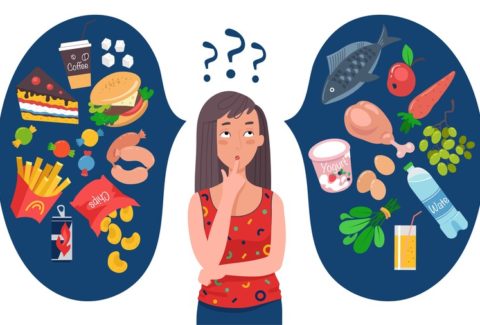Habit Formation and CBI
Consciousness-Based Intervention (CBI)1,2,3,4 is a modality that consists of providing individuals with the tools they need to start living in reality instead of continuing to live in fantasies or illusions. For this to take place, an experiential understanding5, in addition to an intellectual understanding, is required. However, we have patterns that interfere with such an experiential understanding, and this, then, calls for the need for block removal, which, can be accomplished through a series of Unconscious-Based Interventions (UBI)6,7,8. Yet, Unconscious-Based Interventions require practice. The same patterns that get in the way of an intellectual understanding of CBI also make it difficult for one to actually practice UBI9. Those patterns take the forms of habits10,11, and unless they are dealt with, one will continue to be facing an uphill battle12. Therefore, both common sense and the scientific method of problem-solving dictate that addressing the challenge at its root means addressing the real obstacle head on – our habits. In this vein, it becomes clear that the proper delivery and effectiveness, and quality of CBI or even UBI rests upon successful habit formation or habit shaping13, hence our current focus.
First, we are to define what we are calling a habit. So, what is a habit?
There are several definitions for the word “habit.” As we go over a few of them, we will proceed with a comment on each one of them.
Definition 1: A habit is, “a settled or regular tendency or practice, especially one that is hard to give up.” In this definition, it is worth highlighting the terms, “settled,” “regular,” “tendency,” “practice,” and “hard to give up.” Let us now examine each one of these highlighted terms.
Settled: Means “steady,” “predictable,” “not likely to change,” and “comfortable,” It also means, “established,” “determined,”
“Settled,” is related to the verb, “To settle,” which means to resolve or reach an agreement about something.
Regular: Means a constant or definite pattern. It is related to the terms, “methodical,” “systematic,” “structured,” “well ordered,” and “well organized.” It also means, “recurring,” “uniform,” “even,” “consistent,” “constant,” “unchanging,” and “unvarying.”
Whether a habit works for us or not, these are its characteristics. This means that forming or shaping the types of habits that do serve us is in our best interest. However, we know it is not so straightforward. And the reason for this is intrinsic to the definition of “habit,” itself. Yet, paradoxically, the same factors that make a habit so hard to let go of are the same factors that will help us let go of them. This is, of course, when we understand these factors. And this, in turn, can be accomplished by examining them and by exploring each of the components of a habit.
Let us now move on to the next set of terms used to define habit.
Tendency: A tendency is an “inclination toward a particular characteristic or type of behavior.” From this definition, one may suspect that the process of habit formation entails learning about one’s tendency, particularly in the specific area where the habit formation is expected to take place. For this, one will benefit from a series of self-awareness tests, and a series of logs. In other words, helping individuals discover their strengths, personality traits, way of thinking, feeling, and being can be a great way to set them up for success in habit formation.
Practice: “Practice,” is “the actual application or use of an idea, belief, or method.” Practice also means exercise, procedure, tradition or custom.
From this definition of the word, “practice,” one may suspect that habits are formed as a result of the application, exercise, routine, tradition, or custom. In other words, for a habit to be present15 there is a requirement for the application of exercises of certain routines until they become automated. As such, helping individuals learn how to develop a routine, how to get started, how to practice optimally, and how to remain consistent, is an essential pillar in the success of habit formation.
It is “hard to give up,” a habit because:
- It gets reinforced, each time it is performed
- It gets more and more consolidated with each reinforcement
- It forms newer and stronger associations with each reinforcement
- With time, it gets generalized, automated, and it eventually takes place as if on an autopilot
These patterns of a habit make it hard to break. Habit formation, therefore, entails an individual’s awareness of their already formed habits. While the focus will not be on the habits that are already present, we can learn much from our current habits to help inform a more strategic habit formation process.
More soon.
References:
- https://www.amazon.com/Psychotherapy-Certificate-Course-Clinician-Manual/dp/B08FXKPHJ1/ref=sr_1_1?crid=1HBAG6N1K7YT1&keywords=psychotherapy+certificate+course&qid=1675530727&sprefix=psychotherapy+certificate+course+%2Caps%2C85&sr=8-1
- https://www.amazon.com/Book-II-Psychotherapy-Certificate-Clinician-ebook/dp/B08R7YJ8WF/ref=sr_1_2?crid=1HBAG6N1K7YT1&keywords=psychotherapy+certificate+course&qid=1675530727&sprefix=psychotherapy+certificate+course+%2Caps%2C85&sr=8-2
- https://www.amazon.com/Whats-Missing-Mardoche-Sidor-MD/dp/B09BGG7VDW/ref=sr_1_1?crid=2Y65SJG1CK78V&keywords=what%27s+missing%2C+mardoche+Sidor%2C+md&qid=1675531100&sprefix=what%27s+missing%2C+mardoche+sidor%2C+md%2Caps%2C86&sr=8-1
- https://sweetinstitute.com/our-psychotherapy-course-a-brief-summary-of-what-we-have-seen-so-far/
- https://sweetinstitute.com/the-breath-awareness-method-the-why/
- https://sweetinstitute.com/healthy-relationship-with-thoughts-and-foundation-for-unconscious-based-interventions/
- https://sweetinstitute.com/the-why-of-unconscious-based-interventions/
- https://sweetinstitute.com/conscious-unconscious-alignment/
- https://sweetinstitute.com/blocks/
- https://sweetinstitute.com/the-power-of-habit/
- https://sweetinstitute.com/behavior-modification-decision-matrix/
- https://sweetinstitute.com/i-want-something-different/
- https://sweetinstitute.com/understanding-behavior-change/
- https://sweetinstitute.com/behavior-substitution/
- https://sweetinstitute.com/behavior-substitution/









